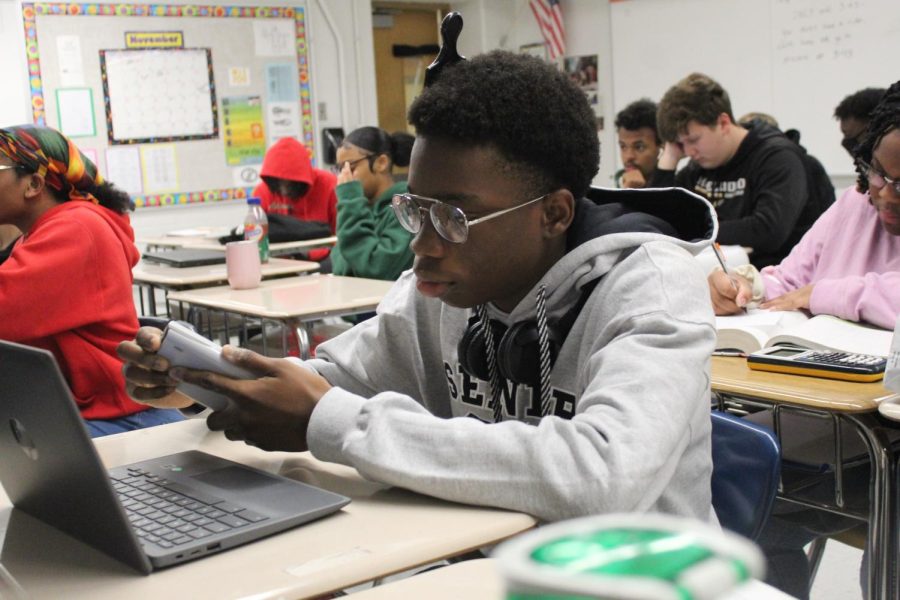Misconceptions linger for African students at Hazelwood Central
African students at Hazelwood Central sometimes struggle to gain full acceptance, and deal with stereotypes about what kind of students-and people they are
November 3, 2022
Even though this generation does not necessarily embody that stigma, this is how senior Oluwamayokun Lawal describes the unwavering impression that many immigrant or 1st generation African Americans are being viewed in a different light: He feels that it’s either Africans in the American school system are viewed positively or there’s a belief of the stigma of “African Americans vs. Africans.”
Hazelwood Central High is a predominantly Black school, so some might wonder – Where does this stigma come from?
“I wouldn’t say Central isn’t a comfortable space for being a foreign student but I wouldn’t say it is either, because sometimes people have these specific beliefs about Africans, for example, people believe I don’t speak English, and English is our first Language in Nigeria,” said senior Eva Okaro.
What makes the transit harder is that most students fail to understand that they can appreciate the African culture without appropriating them and possess their equal strengths.
It is portrayed as “appropriating” because these students feel different. “I would say I was kind of bullied, because of the jokes on the color of my skin, or about me being African in general – yet it’s the same students listening to Afrobeats and eating our foods.” said senior Botiwuoluwa Adekunle. Throughout her education, her peers’ curiosity about the African culture was quite overwhelming.
African students have the impression that there is a certain standard that they must meet, and that standard is always to be at the top. Being a student from another country brings with it a variety of impressions, but how else can they stand out?
“Africa is a way of life, Naija no dey carry last,” said sophomore Morolaoluwa Lawal referring to the struggles and pride Africans have to be successful in any circumstance they find themselves in.
It’s another phase to be seen differently but still be treated the same, but many may wonder if it outweighs the stigma.
“I’ve been in America for 5 years and had teachers not even try to pronounce my name or mark me absent because they didn’t wanna butcher it – me thinking going by Evangelica as my first name and not my actual first name would make it easier, it didn’t, said Okaro.
In reality the differences between African American students and first generation Africans are not that great, and with just a few small changes, students and faculty would make the environment more welcoming to them.
“Something people need to know is that we are all in this together, so there’s no reason to think that we hate each other or one group is better than the other. We all have our equalities, strength and we can appreciate each other’s cultures without appropriating it,” explained senior Oluwamayokun Lawal.
